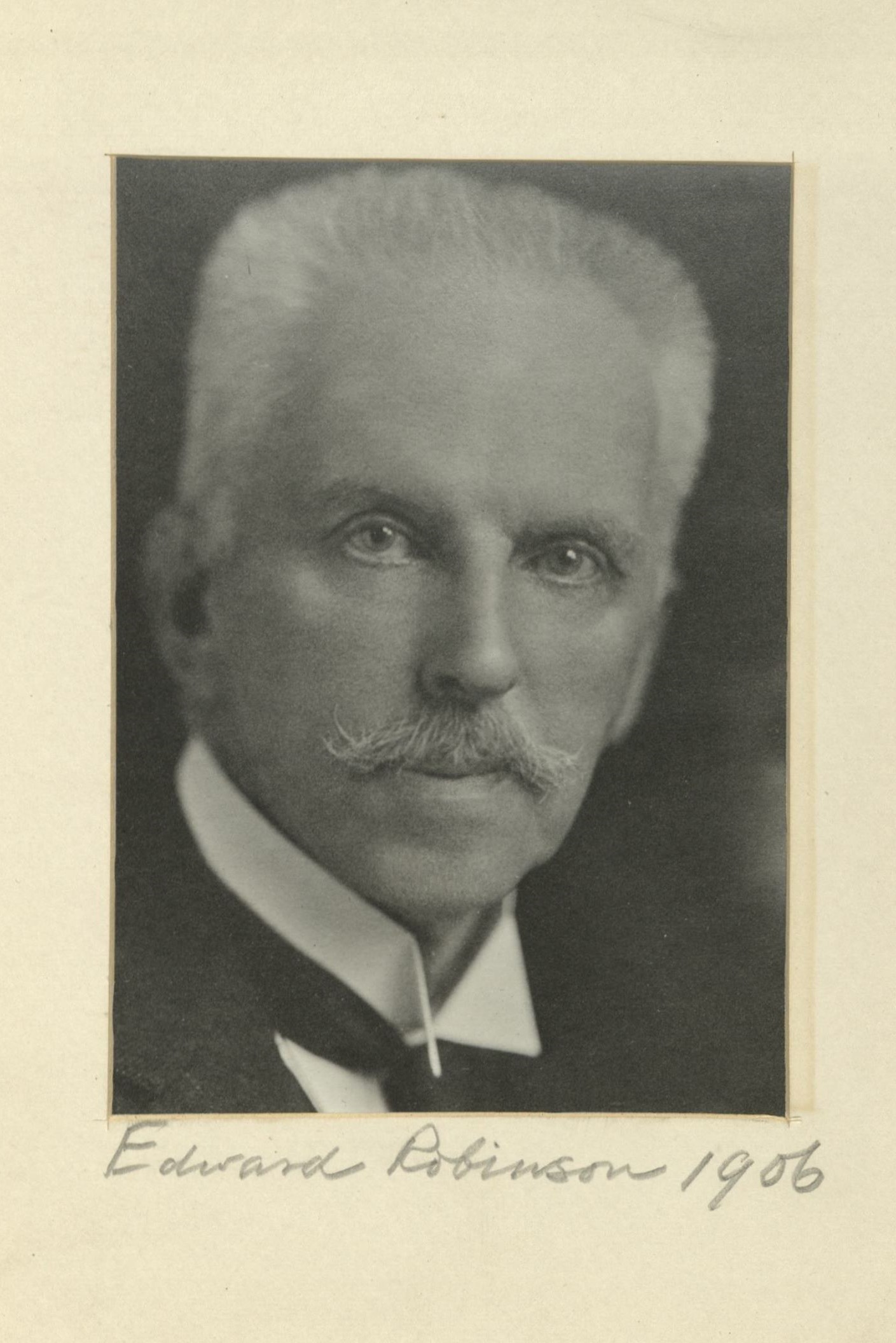Assistant Director, Metropolitan Museum of Art
Centurion, 1906–1931
Born 1 November 1858 in Boston, Massachusetts
Died 18 April 1931 in New York (Manhattan), New York
Buried Mount Auburn Cemetery , Cambridge, Massachusetts
, Cambridge, Massachusetts
Proposed by Robert W. de Forest and Frederic Crowninshield
Elected 1 December 1906 at age forty-eight
Proposer of:
Century Memorial
With the naming of Edward Robinson as its director, twenty-one years ago, the Metropolitan Museum came into its own. Launched as the undertaking was through benevolent grants of public money by Tweed and his legislature, housed as its collections were for eight years in remodeled private dwellings, officially directed during fifteen years by an Italian [Luigi P. di Cesnola] and during the next five by an Englishman [C. Purdon Clarke], the institution evidently had not yet emerged from the provincial atmosphere. That chapter of its history doubtless reflected the slow growth of the artistic instinct in America, perhaps the sense of timidity with which the Museum’s position among the world’s great art collections was regarded by itself. But all of this misgiving disappeared under Robinson’s régime, when for the first time an American scholar was placed at the head of the Metropolitan. Himself by choice an expert in classical art, his management was distinguished conspicuously by additions to the Museum’s exhibits of early American canvases and colonial interiors. With these came a wealth of artistic originals from Greece, Rome and the Far East; study at the Metropolitan became an indispensable part of the artist’s education. It is to Robinson’s conception of its possibilities that the Museum owes the exceedingly interesting arrangement of collections whereby not only the achievement of a period is pictured, but the growth of culture and imagination through the centuries, in ancient as in modern communities.
Robinson’s own artistic personality, the thoughtful face, the bright eye, the curly white hair, the quietly cordial manner, were well known at the Century. He was a man of many intellectual interests and of varied associations. He served usefully for years on the Century’s board of governors; indeed, his Club affiliations possibly stood next in his own regard to those of his beloved Museum.
Alexander Dana Noyes
1932 Century Association Yearbook

